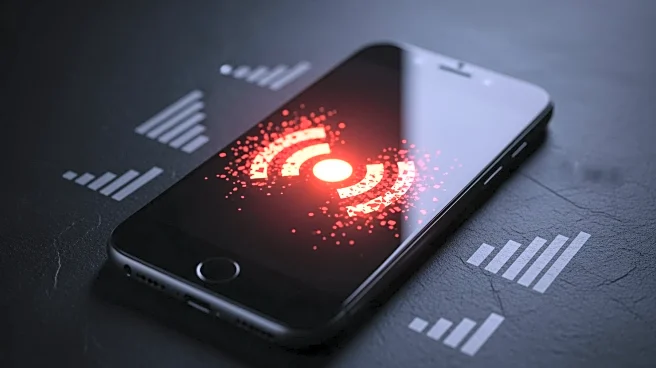What's Happening?
In Russia, widespread cellphone internet outages have been causing significant disruptions to daily life. These shutdowns, reportedly aimed at preventing Ukrainian drone attacks, have affected dozens of
regions since May. Popular messaging apps have also been restricted, with the government promoting a state-controlled app, MAX, which critics view as a surveillance tool. Despite broadband and Wi-Fi remaining unaffected, Russians have reported difficulties in accessing essential services, such as credit card transactions and health monitoring apps. The outages have led to increased reliance on government-approved 'white lists' of websites and services, limiting access to alternative content.
Why It's Important?
The internet outages in Russia highlight the government's increasing control over digital communications, raising concerns about privacy and freedom of information. The restrictions impact various aspects of daily life, from financial transactions to health monitoring, and could lead to broader societal implications. The promotion of state-controlled apps like MAX suggests a shift towards greater surveillance and control over digital communications. These measures may affect Russia's economic activities and international relations, as they limit access to global digital platforms and services.
What's Next?
Further restrictions on internet access and messaging apps are likely, as the government continues to prioritize security measures. The expansion of 'white lists' may provide limited relief, but the overall trend points towards increased digital control. The impact on economic activities and public sentiment could lead to further scrutiny and criticism from international observers. The government's approach to digital regulation may influence future policies and technological developments in Russia.









